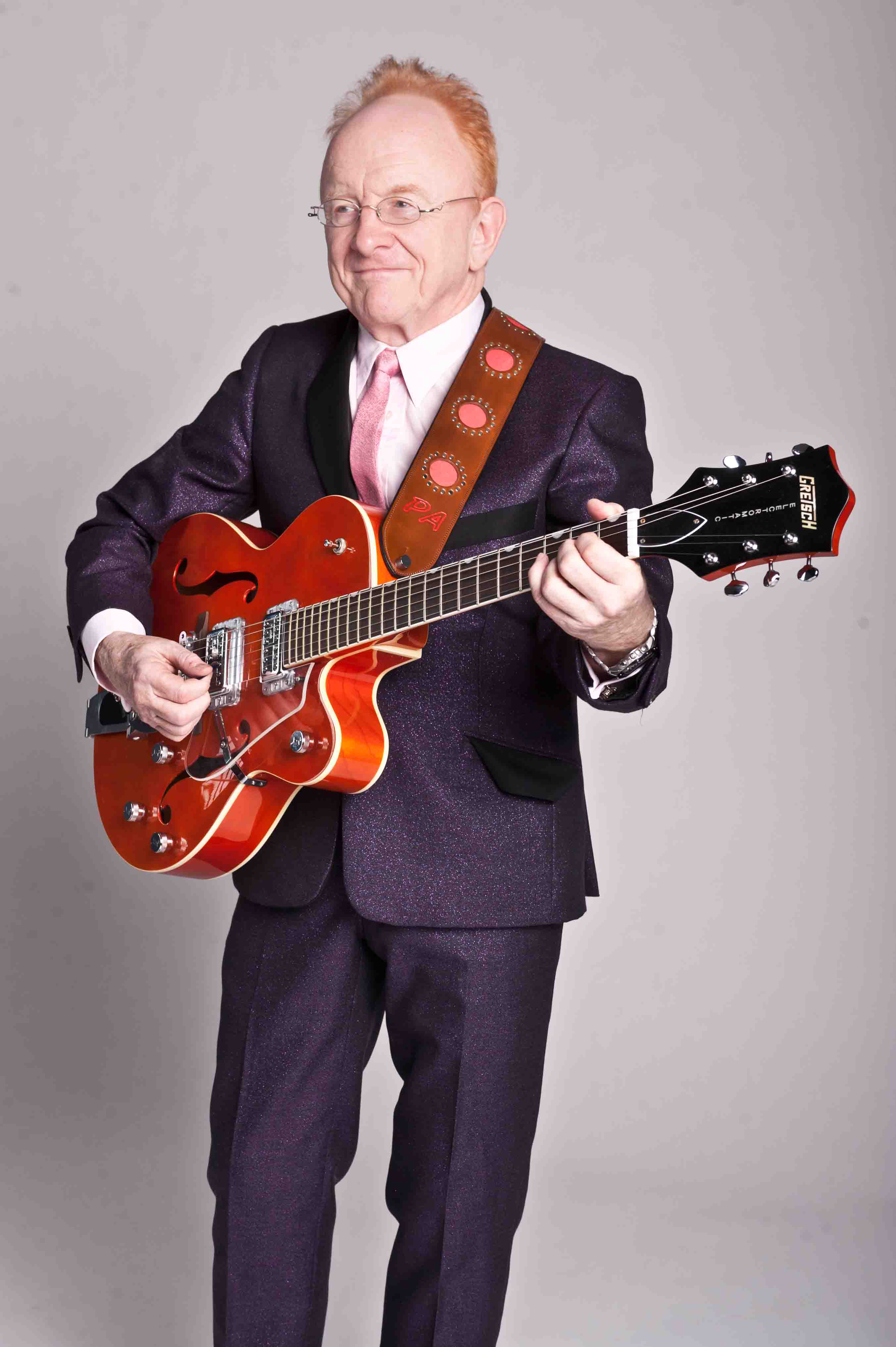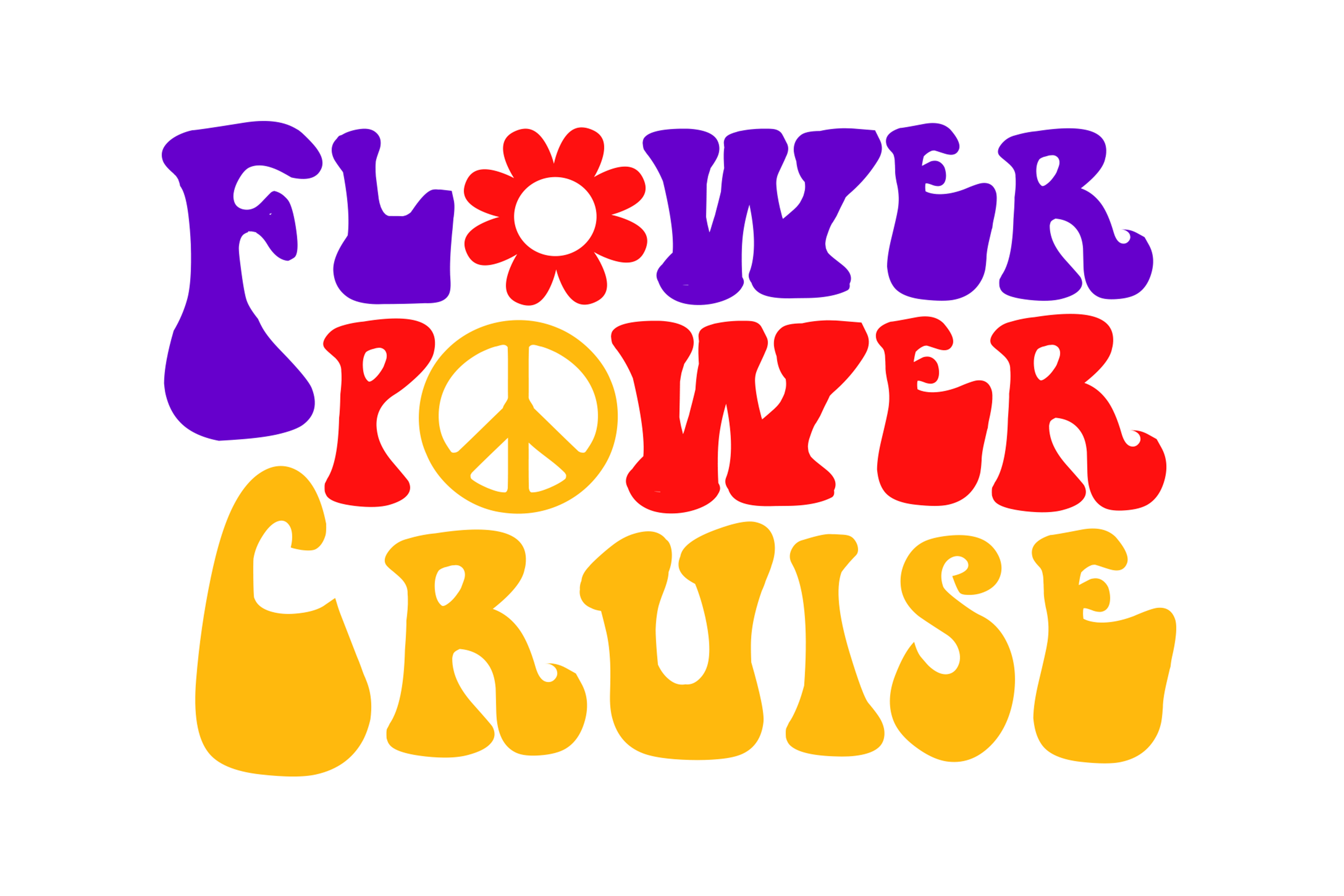Catching Up With… Peter Asher

He should write a book … and perhaps he will. Peter Asher has been a child actor, Sixties pop star, producer of MANY hit records for other artists, manager, club owner, hip gallery-bookstore founder, Broadway music supervisor, and a collaborator on movie soundtracks. His sister, Jane, dated Paul McCartney for five years, and Paul lived at the Ashers’ house.
Everyone who was on 2016’s Flower Power Cruise knows that Peter not only had a front-row seat for the Flower Power era, but remembers it all, and truly enjoys sharing his music and stories. He’s looking forward to returning, and we’re certainly looking forward to welcoming him.
In 2015, you were made a Commander of the British Empire. Was the Queen at the investiture? And are there any responsibilities that go with the honor?
The Queen is what they call “The Fountain of Honor,” but that doesn’t mean she’ll be there for all the investitures. Prince William was there for mine. There are no responsibilities whatsoever, but no practical benefits either. I was just so totally surprised. The interesting part of the process is that it’s all so secretive beforehand. Someone calls and asks if you’re by yourself. That part of it was very cloak-and-dagger. But the actual ceremony at Buckingham Palace was very cool.
As a child, was there one record you played repeatedly or one performer who made you say, “I want to do that”?
My mother was a professor of oboe at the Guildhall School of Music and George Martin was one of her students, so of course I grew up with classical music. But I guess it was American music in general that turned my head around. Everyone I hung around with was in love with American music. It was all so miraculous. The first records I bought were mostly by the British guys who tried to sound American, like Tommy Steele, Cliff Richard, and Lonnie Donegan. When I met Gordon at school, we wanted to be the Everly Brothers. So really, it was American music that made me think, “I want to do that!”
You’ve seen recording go from two-track analog tape to hundreds-of-tracks recorded digitally to computer. Are there too many crutches now?
In general, the more tools the better. I suppose some skills have fallen by the wayside. In some ways, it was more exciting when all the musicians were playing at once, but I like the flexibility of modern recording. I don’t miss two-track or four-track tape. Now it’s true you can have too great a reliance on tools. Auto-tune, for instance, where you can bring a voice on-pitch. And arrangers will say, “If you don’t like that part there, you can move it around,” and you think, “Couldn’t you have thought of that earlier?” So, yes, perhaps there’s a laziness that creeps in, but in general I totally embrace modern studio technology.
It’s easy to forget that when your sister Jane went to interview the Beatles in 1963, she might not have been quite as well-known as them, but she was a bona fide star. Did you know ahead of time that she was going to talk to them?
Yes, she said she was going to interview them for a weekly magazine that the BBC published, Radio Times. They were playing at the Royal Albert Hall [in April 1963] before anyone had heard of them over here. Very soon after, of course, Paul moved in with us.
When Paul McCartney played you “World without Love,” they had already custom-written songs for several other artists, even the Stones. Had anyone else turned down “World without Love” as far as you know?
For a long time, I thought they’d pitched it to Billy J. Kramer, but I saw Billy some time back and he said they hadn’t. Only the Beatles had heard it. Paul hadn’t even written the bridge. His demo is on Youtube now and you can hear that it’s only about one minute long. It had been abandoned. An orphan song. Then EMI signed Gordon and me. I think they saw us as a folk act, like Peter and Paul without Mary, but I asked Paul [McCartney] if that song was still available, and he said it was. Then he wrote the bridge.
You look at back issues of Billboard from the Sixties, and every week there are several albums that became classics. Something you can say of no other era. Why was that, do you think?
Perhaps there are THAT many future classics released THIS week. Adele’s 25 will certainly be heralded as one of the greatest albums of all time, I think. But it’s true that some decades are more fruitful than others. I was in England, and there was certainly a surge of creativity, and I think it came from relief that the post-War, black & white, bombsite grimness was over. Collectively, we said, “Enough of that.” And that was the Sixties. I’m just grateful I was there.
When Paul McCartney was living in your parents’ house, do you remember a Beatles song that you heard maybe even before John Lennon?
I don’t think so, though I was there when John and Paul finished “I Want to Hold Your Hand.” I sat on the sofa, they sat side-by-side on the piano bench and played it for the first time to anyone. They asked me what I thought. I told them it was very good. My mother was there when Paul woke up with “Yesterday” in his head. She remembered his curiosity about what song it was. He didn’t think it was original.
Do you think the Beatles could have accomplished what they did if they had any inkling that their music would be almost as popular in 2016 as it was when they were creating it?
Would Mozart have created music as he did if he thought we’d still be listening to it? It would have been intimidating for him. The Beatles, too. You have to remember, the question we were all asked almost every day was, “What are you going to do when this blows over?” It took a while to dawn on people that the Beatles had taken popular music to a new level of seriousness. I think everyone who was in England then remembers Kenneth Tynan’s review of Sgt. Pepper in The Times (“A decisive moment in the history of Western Civilization”). No one had said that about a pop record before.
You were still scoring hits as a performer to within a few months of joining Apple as an A&R man. I know Apple was a non-traditional company, but was it a big leap to go to the other side of the studio glass?
It wasn’t such a big leap for me. Almost as soon as we began recording, I realized I wanted to be a producer. I made a point to be there for the mixing, and so on. And I’d produced one record before I went to Apple, Paul Jones’ “And the Sun Will Shine.” Paul McCartney liked that record. He brought me into Apple. And of course, it wasn’t like we all turned up in suits and ties. It was a different kind of company.
You’ve been involved as producer or manager with many artists that have had what are politely called “personal problems.” Is it your policy to try to help if you can or to focus solely upon the business?
There’s always psychology involved in being a manager or producer, and I try to help when I can. Nothing in my life had prepared me for James Taylor’s problems, for instance, but you want your records or your artists to be as successful as possible, so you try to help, no matter how feebly.
And, finally, we’re so pleased that you’re rejoining us this year.
Believe me, I am SO happy to be invited back. Everything about the Flower Power Cruise was top class. I had such a terrific time meeting people. Someone told me I’d be trapped in my cabin, but what’s the point of that? I can’t tell you how much I look forward to singing for --and meeting-- everyone. I love performing, but the most fun is conversing with so many interesting fellow cruisers! I make it a point to get out and about every day, getting into all kinds of discussions at the various events and activities and sharing food and drink with new friends. Last year was just incredible fun on every level, and I’m so honored they’ve invited me back!
Colin Escott © 2016
